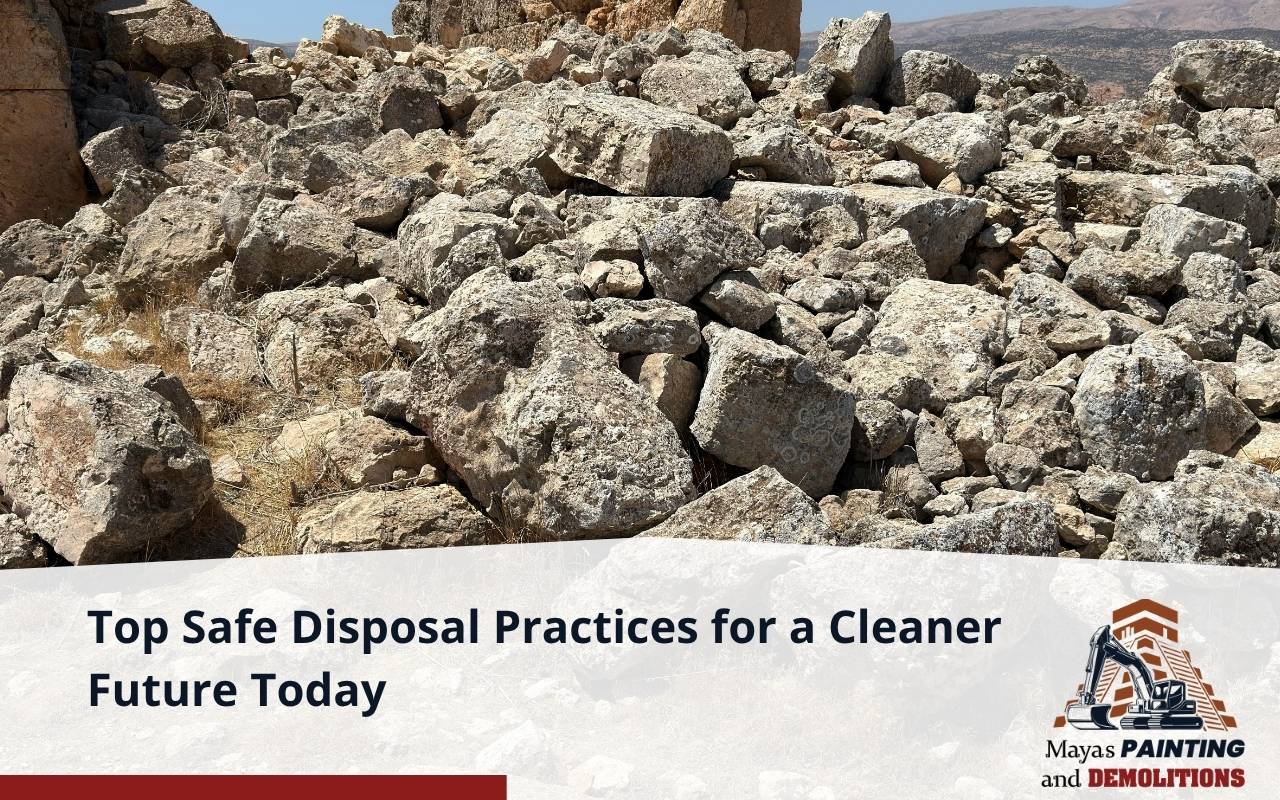
Everyday waste decisions influence our environment more than we imagine. By adopting safe disposal practices, individuals and communities can protect air, soil, and water. Although the challenge seems overwhelming, choosing responsible methods helps reduce pollution and supports healthier ecosystems. With consistent habits, we can prevent waste from defining our legacy and instead show commitment to sustainability. To explore responsible approaches, see how to remove construction debris.
The Environmental Impact of Improper Waste Disposal
- Soil contamination occurs through toxic leachate leaking into ground supplies.
- Air pollution results from burning refuse, releasing dangerous gases.
- Marine life suffers due to microplastics and debris accumulation.
When waste is mismanaged, it creates risks for human health and ecosystems. Safe disposal practices mitigate these dangers by preventing contamination and supporting healthier environments.
Importance of Safe Disposal Practices
- Segregating waste improves recycling efficiency and reduces landfill burdens.
- Communities benefit from cleaner streets and healthier living conditions.
- Businesses gain compliance, savings, and improved reputations.
Integrating safe disposal practices cuts costs, supports public health, and reduces climate impacts. For businesses, these efforts also improve sustainability credentials.
Reduce, Reuse, Recycle: The Foundation of Safe Disposal
The “Three Rs” framework forms the basis of waste reduction. Reduce means avoiding single-use products. Reuse extends product life through repairs and donations. Recycling turns materials into new resources, supporting a circular economy. Together, these principles encourage consistent safe disposal practices.
Hazardous Waste Management: Protecting Our Ecosystem
Pesticides, paints, and batteries require careful handling. Safe disposal practices for hazardous waste demand specialized facilities and strict regulation. Residents should rely on collection programs, while industries must follow clear compliance standards. This prevents water contamination, soil pollution, and fire hazards. For detailed help, review construction waste disposal.
E-Waste Disposal: Safely Handling Electronic Devices
Electronics contain precious metals and toxic substances. Safe disposal practices for e-waste involve recycling through certified programs. Before disposal, donating or reselling devices extends their usefulness. Companies can track hardware lifecycles to ensure sustainable management. Following these measures protects natural resources and communities.
Plastic Pollution Solutions: Sustainable Alternatives
Plastic waste harms oceans and wildlife. Safe disposal practices for plastics include switching to reusable alternatives, promoting refill stations, and supporting recycling systems. Policies like deposit-refund programs motivate consumer participation. Additionally, businesses can adopt biodegradable packaging options to reduce plastic dependency.
Composting: Turning Waste into Nutrient-Rich Soil
Food and yard waste make excellent compost. Safe disposal practices include balancing nitrogen-rich and carbon-rich inputs for decomposition. Composting reduces methane emissions, improves soil fertility, and cuts chemical fertilizer needs. By adopting this method, households and municipalities divert significant waste from landfills.
Community Involvement and Advocacy for Safe Disposal
Community-driven initiatives build collective responsibility. Schools, neighborhoods, and volunteer groups can run recycling events or organize clean-ups. Advocating for recycling facilities or composting services expands infrastructure. Sharing knowledge through campaigns raises awareness and strengthens adoption of safe disposal practices. To learn about professional help, explore debris hauling services.
Government Regulations and Waste Management Policies
Governments enforce landfill bans, recycling targets, and hazardous waste rules. These regulations strengthen safe disposal practices on a broad scale. International agreements also ensure responsible global waste movement. Local enforcement, inspections, and incentives encourage compliance and innovation. With proper laws, sustainable waste handling becomes practical and effective.
FAQs About Safe Disposal Practices
Why are safe disposal practices important?
They protect natural resources, reduce pollution, and ensure healthier living conditions for people and wildlife.
How can communities promote responsible disposal?
They can organize clean-ups, hold recycling events, and encourage sustainable policies through education and advocacy.
What should I do with hazardous waste?
Use local collection events or specialized facilities designed to handle hazardous materials safely.
Can electronic devices be recycled?
Yes, e-waste can be recycled through certified programs that recover valuable metals and prevent toxic leakage.
What role do governments play in waste management?
They regulate disposal, enforce recycling laws, and support infrastructure to ensure safe disposal practices nationwide.
Shaping a Cleaner Future through Responsible Disposal
Adopting safe disposal practices requires cooperation among individuals, businesses, and governments. By choosing composting, recycling, and sustainable alternatives, we reduce environmental impacts and promote a healthier world. For personalized assistance, visit our contact page today. Together, we can build a future where waste no longer harms our planet.
